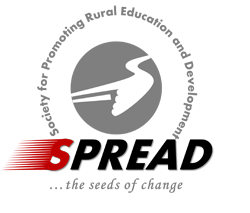Mapping common property resources led by tribal women in Koraput, Odisha - A digital prototype


The intricate relationship between gender, commons, and climate change in India underscores multifaceted dynamics. Commons, denoting shared natural resources within a community, symbolise collective heritage and spaces fostering cooperation and coexistence. They serve as pillars for inclusivity, sustainability, and resilience. Gender stands central in this nexus, intertwining with climate change, creating interconnected challenges.
Women’s pivotal role in commons conservation, managing shared resources like forests, water and land is significant. Their knowledge, traditional practices, and understanding regional biodiversity and climate contribute immensely. Women utilize commons for domestic needs, impacting livelihoods, food security, and community welfare. Their insights offer innovative solutions, vital for conserving and tackling challenges to the commons.
One of the key findings across the mapping exercises was the important role played by women in governing the commons. The women actively contribute to the protection of the commons in various ways. They adhere to and respect customary practices and norms that govern the usage of these resources, recognizing their importance for sustainable resource management. By doing so, they ensure that their engagement with the commons aligns with the community‘s values and cultural sensitivity. The commons hold great economic significance for the women and their families. They are often essential for sustaining their livelihoods. Consequently, the women prioritize the economic value of these resources within the framework of customary regulations and rights, to enhance their own livelihood security. Alongside sustainable harvesting practices and income-generating activities, a system of informal participatory governance of the commons exists and persists. While women play this integral role with respect to governance of the commons, their political participation in formal or informal governance is passive and often they are not included in direct decision making.
Purpose
The purpose of this commons dashboard is to support local communities in mapping their common pool resources such as community grazing lands, forests, water bodies, and fishing areas. This documentation is essential for managing and protecting these resources effectively. The dashboard provides a clear picture of resource distribution and helps in allocating resources among community members or users. It aids in delineating areas for specific activities like agriculture, grazing, or fishing, reducing conflicts over resource use. The dashboard could serve as an archive of traditional knowledge of communities which could potentially support conservation efforts and climate action.